Opinion: Where were you when Gaza was going through a genocide?
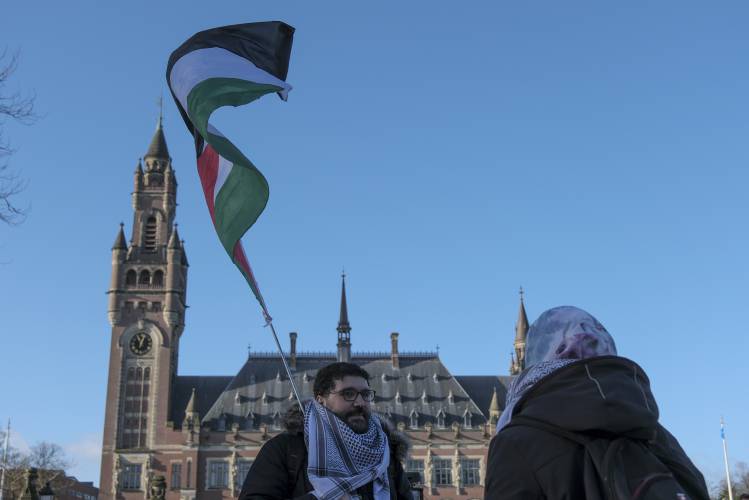
Protesters gather outside the Peace Palace, which houses the International Court of Justice, or World Court, in The Hague, Netherlands, Friday, Jan. 26. Patrick Post / AP
| Published: 08-10-2024 6:30 AM |
Robert Azzi is a photographer and writer who lives in Exeter. His columns are archived at robertazzitheother.substack.com.
‘I know first-hand that Israel has created an apartheid reality within its borders and through its occupation. The parallels to my own beloved South Africa are painfully stark indeed,” the late Anglican Bishop Desmond Tutu, standing up for Palestinian rights, wrote in 2014.
Too few people listened.
Too few people distinguished between the State of Israel’s borders and its colonial-settler occupation and exploitation of Palestinian lands post-1967.
On June 23, during a discussion on an apartheid resolution at the most recent Episcopal Convention, Southeast Florida Bishop Peter Eaton objected to a proposed resolution, saying that “it has long been discredited in most academic circles to use the word ‘apartheid’ with respect to the government and people of Israel.”
I don’t know what academic circles Bishop Eaton travels in, what circles inform his worldview, but it’s neither my worldview nor the view of most Episcopalians and Anglicans who know the Middle East well.
Nonetheless, Eaton’s view, supported by others, prevailed in the House of Bishops.
Now, I’m not going to pretend to know whether Bishop Eaton knows more about apartheid in Israel than Bishop Tutu knew, but I’m certain he knows less about Israel than many Israelis, many of whom have spoken about apartheid in Israel.
Article continues after...
Yesterday's Most Read Articles
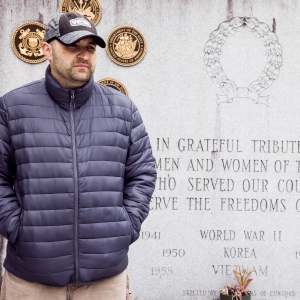 ‘Would you raise your right hand?’ — Local veterans consider the meaning of Memorial Day
‘Would you raise your right hand?’ — Local veterans consider the meaning of Memorial Day
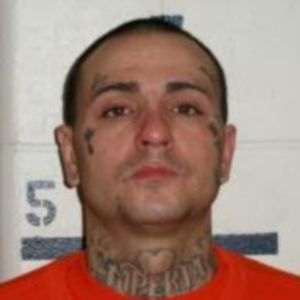 Jesse Sullivan pleads guilty to second-degree murder of half-brother, Zackary
Jesse Sullivan pleads guilty to second-degree murder of half-brother, Zackary
 ‘Bittersweet’: The Post on Main Street closes Friday
‘Bittersweet’: The Post on Main Street closes Friday
 Messy parking around Concord’s bus terminal won’t get less messy any time soon
Messy parking around Concord’s bus terminal won’t get less messy any time soon
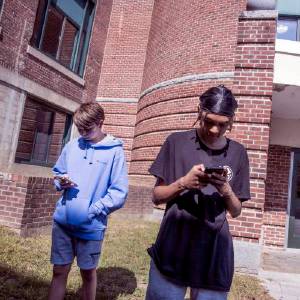 New Hampshire school phone ban could be among strictest in the country
New Hampshire school phone ban could be among strictest in the country
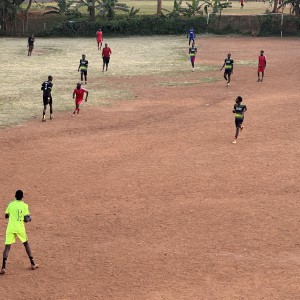 ‘Something to chase’: Pascal Zabayo’s art fundraiser grows soccer from Concord to Kampala, Uganda
‘Something to chase’: Pascal Zabayo’s art fundraiser grows soccer from Concord to Kampala, Uganda
If Bishop Eaton won’t listen to Bishop Tutu maybe he’ll listen to Israelis. Maybe he’ll listen to former Israeli Ambassador to South Africa Alon Liel who said in 2013, “In the situation that exists today, until a Palestinian state is created, we are actually one state. This joint state … is an apartheid state.”
Maybe he’ll listen to rights organizations like Yesh Din — Israeli Volunteers for Human Rights; Btselem, another Israeli Human Rights organization, Amnesty International and Human Rights Watch, all of whom have spoken out on Israeli apartheid.
The problem is that it’s not just an Episcopal or Christian problem. It’s an American problem, a white problem, a problem of not recognizing the equal humanity of non-white peoples who look as Jesus looked living in lands once believed holy.
A problem that is pervasive, invasive and, I believe, racist. A problem both international and local.
My own state governor, Chris Sununu, himself of Palestinian heritage (his father’s parents were Palestinian emigres to Central America) said in response to activism on local university campuses, “One hundred percent, this is pure antisemitism. This is pure hatred. It is. And again, they have a right to express that. I’m disgusted by it, frankly.”
“What is clear to me is that the vast majority of what’s happening on college campuses is uneducated prejudice and hatred,” Sununu said. “It’s really shocking. I mean, who isn’t shocked by the level of antisemitism we’re seeing in this country right now? I mean, it’s really sad.”
Indeed, it’s really sad, though not uncommon, to witness high-ranking officials flaunt their ignorance in public. While antisemitism exists across America’s political spectrum, this is not about antisemitism.
It’s about justice and liberation, about recognizing the humanity of all peoples, about opposing the weaponization of genocide, ethnic cleansing and famine as instruments of oppression.
This week incumbent U.S. Rep. Cori Bush, a prominent member of the “Squad,” was defeated in a Democratic primary in St. Louis, after AIPAC (the American Israel Public Affairs Committee) targeted the two-term representative because she was a critic of Israel’s response to Hamas’ Oct. 7 attack. Bush called Israel’s retaliation an “ethnic cleansing campaign” and posted on social media that Israel’s “collective punishment against Palestinians for Hamas’s actions is a war crime.”
She was right, just as U.S. Rep. Jamaal Bowman from NY’s 16th was recently defeated in his primary by an AIPAC-sponsored candidate who received $15 million from the pro-Israel PAC.
Just as I will not vote for the reelection of Congressman Chris Pappas, who has fully capitulated to pro-Israeli lobbying interests.
The reality is that since Oct. 7, 2023, Israel has — with Western, mostly American support — acted in a carefully orchestrated way to deprive Palestinians and supporters of Palestinians, of their voices, of platforms, of their identity.
The truth is that since 1967, not just since Oct. 7, Israel has systematically — with Western, mostly American support — acted to illegally deprive Palestinians of their lands, rights, and humanity.
And now finally, as many of us have known for decades, it has been affirmed — despite the protests of bishops, politicians, pundits, and war-mongers — that Israel’s occupation of East Jerusalem, Gaza, and the West Bank, is totally illegal.
Last month, the world’s highest court, the International Court of Justice (ICJ) in the Hague, ruled in an advisory opinion to the UN, made upon the request of the UN’s General Assembly, that: “the Israeli settlements in the West Bank and East Jerusalem … have been established and are being maintained in violation of international law.”
The ICJ also ruled that Israel must undertake the “evacuation of all settlers from existing settlements” and that it must “provide full reparation for the damage caused by its internationally wrongful acts to all natural or legal persons concerned.”
This is a big deal.
The ICJ also affirmed that violations of international law in the occupied territories are the concern of all states who have an “obligation not to recognize as legal the situation in the occupied Palestinian territories (OPT), to work through the UN to bring an end of the occupation” and to “abstain from treaty relations, diplomatic relations, economic or trade dealings, or investment relations with Israel in all cases in which it purports to act on behalf of the OPT.”
That is the truth.
“If you fail to call this a genocide. It is on you,” Rev. Munther Isaac, academic dean of Bethlehem Bible College in Palestine wrote on Gaza. “It is a sin and a darkness you willingly embrace. ... Some have not called for a ceasefire…I feel sorry for you. We will be ok... Despite the immense blow we have endured, we will recover... But again, for those who are complicit, I feel sorry for you. Will you ever recover from this?”
“Your charity, your words of shock AFTER the genocide, won’t make a difference. Words of regret will not suffice for you. We will not accept your apology after the genocide. What has been done, has been done. I want you to look at the mirror… and ask: where was I when Gaza was going through a genocide?”







 Opinion: How dark can it get?
Opinion: How dark can it get?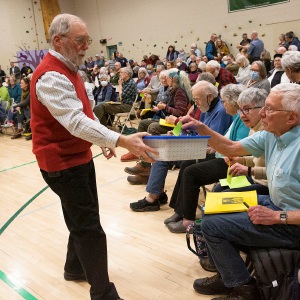 Opinion: Unfair taxes, unfair schools: The New Hampshire way
Opinion: Unfair taxes, unfair schools: The New Hampshire way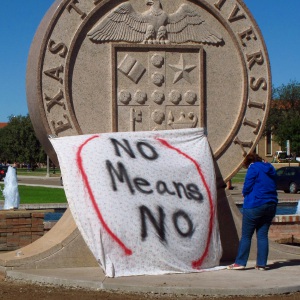 Opinion: In the fight to stop sexual violence, can polio hold the solutions?
Opinion: In the fight to stop sexual violence, can polio hold the solutions?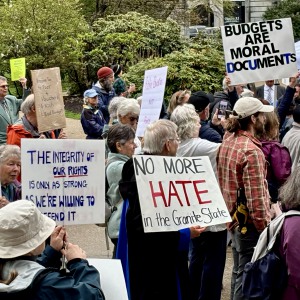 Opinion: Where are the permanent solutions for a more stable budget?
Opinion: Where are the permanent solutions for a more stable budget?
